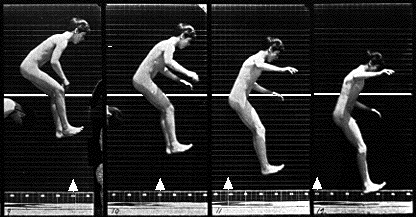These are some thoughts that I had on performance and discourse back in Week 3. They lead up to a beauty parlour presentation where i went into greater detail on the performance I saw, but my notes didnt seem to fit here.
" If you want to know the truth, its this business of desiring that makes an actor in the first place."
J.D. Salinger, Franny and Zooey.
Last saturday night I saw a performance piece in which businessmen in whiteface were moving mechanically, pulling white pieces of paper out of a briefcase, slowly the white paper turns red, and the red paper turns to blood. #1 businessman kills the other businessman by getting the blood on him, and the businessman left standing chokes on the blood and dies. Suddenly the iconic homeless man climbs out of some boxes, steals their coats and all of a sudden white sand falls out of his mouth.
Expectations-
When i went to this show i thought i thought it would be a nice escape from foucault, and a break from my reading. It turns out There Is No Escape. When Foucault makes it his job to ride such terrifically big subjects as Power, Institution, and Identity, you can find his ghost lurking everywhere, in anything. Even performance art.
Obviously, there are a lot of ways that that performance spoke directly to what Foucault was telling us... the subjucation of the worker became part of the institution and the power mechanism, moving mechanically, only to be replaced by someone who provided the same functions. But what I couldnt stop thinking about was Julia's discouse web, which made Foucaults point about the "intricate network of power relations" really come together for me.
Fprce relations are flowing and shifting and causing inequality and filling the gaps, and then all of a sudden two relations of power will intersect- they will be thrown into conflict, and meld, and become dependant on one another to survive. I understand those nodes in the web, those points of intersection to be Discourse.
"Discourse- When Power Converses" TM.
It struck me that every performance I've ever seen has been a depiction of conflicts of power, and eventually this conflict of power comes to some decision, either because of death, or heredity, or political feuds, or beneficiant forgiveness. Every story Ive ever read has boiled down to a story of what happens when streams of power are forced to negotiate. Even the stories we read as children. In an introduction to acting or writing fiction, we are first asked to examine our character's Conflict.
So, why do we do this? Why are we driven to embody conflict and tell its stories over and over again to ourselves?
I feel like performance is really just about observing some conflict of force relations and putting out bodies to it in front of others.
But why?
I think this is what Foucault means when he says "a will to knowledge". We work to understand the supports and instruments of our power discourses. In this case by embodying them. We offer our bodies up to be read as a metaphor of discourse, hoping that if we can embody relations of power, that we can understand them.
It seems like performative rituals are just embodiments of discourse that have been so important to our development that we keep performing them until they become entrenched in our daily practice.
(Foucault uses "will to knowledge" on page 12, and talks about the rituals of power on pg 86.)
